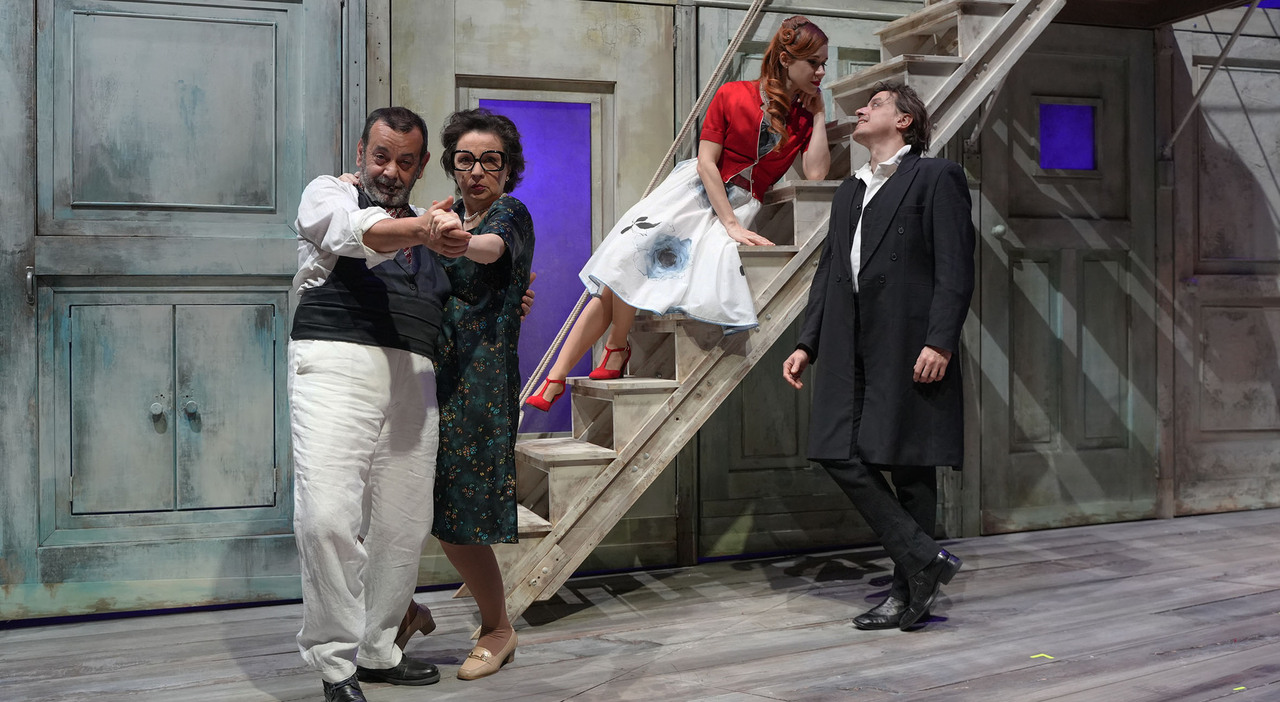Tuesday 2 April 2024, 18:45
Roberto Valerio, after 'The Impresario from Smyrna' by Carlo Goldoni in 2013, returns to the Venetian author, among the fathers of modern comedy, to revisit and stage a text that strikes for its contemporaneity: The Gambler. It is one of the 'sixteen new comedies' that Goldoni commits to writing, at the end of the carnival of 1750, in a challenge with the Venetian public, in a single year (giving life to some masterpieces such as The Coffee Shop and The Liar). It is a vivid study of characters, outlined with verve and precision, that compose the portrait of an entire society, with its virtues and, above all, its vices. Goldoni had indeed proposed the task of representing an 'exemplary theatre' that 'awakened' from the fascination of gambling. And he spoke, as always for the most humanist of playwrights, from personal experience: he himself, confesses in the preface of the printed edition, had experienced on his own skin 'the dire consequences of this anxious pleasure', a regular visitor of the Ridotti, venues attached to theaters specific for various types of games, widespread in the Venice of the Eighteenth century. At the center of the comedy is Florindo, who, devoured by the passion for gambling, loses everything: money, friendships, the love of his betrothed Rosaura, who he sincerely loves, and does not hesitate to promise to marry the old and rich Gandolfa in order to obtain money to play again and continue to dream, like all the gamblers of yesterday and today, of the 'fabulous win' that will allow him to leave the green table. A theme of strong relevance that Roberto Valerio wanted to represent on a scene, designed by Guido Fiorato, occupied by a large boat, which ferries the protagonists towards adventures and misfortunes, vices and attempts at emancipation, drama and comedy, driven by that sweet and poisonous wind that is the illusion, of which all the characters are victims. Everyone lives the fantasy of changing life, of winning, of becoming famous, of seeing all their desires realized, they are united by a rooted inability to deal with reality. It is therefore a sea only apparently calm that crosses who is prey to addictions, whether they are emotional, gambling, drugs, alcohol, sex or, according to contemporaneity, gaming, smartphones, internet or social networks, medicines: as long as it is possible to respond to the request there is an apparent balance, as soon as withdrawal kicks in, the deep root of discomfort is unleashed. The idea of the boat is also a tribute to a theater intended as a journey and to Giorgio Strehler, who thus depicts it speaking of the eighteenth-century playwright, in his Goldonian Memories rewritten between the spring of 1993 and Christmas 1997 and never staged, an act of love towards theatricality. In the script, based on the autobiography, we see a very young Goldoni who decides to embark from Rimini to Venice together with a company of comedians, a short journey but which symbolically, is the beginning of a path that the author will carry forward for his entire existence. The Gambler is a magnificent text, always balanced between comedy and drama, of great modernity, a dark comedy that encompasses the possibility of telling with lightness the vices and hypocrisies of man. The live music, the dance and the original songs performed by the characters contribute to compose a complex, entertaining and scratching show, ironic and playful, which does not neglect the drama of the characters and aims to rediscover the true soul of Goldoni, a writer capable of probing the human soul with a smile on his lips.
© ALL RIGHTS RESERVED
This article is automatically translated
